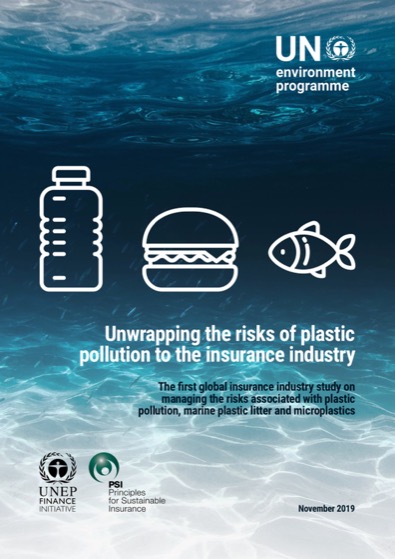Plastic is an increasingly high-profile threat to our climate, ocean, wildlife and human health as it becomes widespread both in the ocean and on land, where it is impacting our ecosystems and threatening lives and human health. Plastics also make a direct contribution to climate change: their energy-intensive manufacture from fossil fuels, recycling and incineration result in high carbon emissions.
This report shows that plastic pollution risks can affect insurance and investment portfolios in the form of physical, transition, liability and reputational risks. These range from threats to human health to evolving liability claims connected to marine litter and plastic pollution should be closely monitored by insurers in coming years.
The study identifies how risks related to plastic pollution play out across insurance lines and asset classes in which insurers invest. It argues that insurers should take an active role in addressing the risks related to plastic pollution and in contributing to global efforts to reduce it. In particular, insurers can consider the following approaches:
- Introduce policies to reduce plastic
- Understand, prevent and reduce plastic pollution
- Insure risks associated with plastic pollution
- Support alternatives to plastic
- Support wider efforts to reduce plastic pollution
Find out more about the work that UNEP FI does with the insurance industry via its Principles for Sustainable Insurance Initiative and read related documents here.



